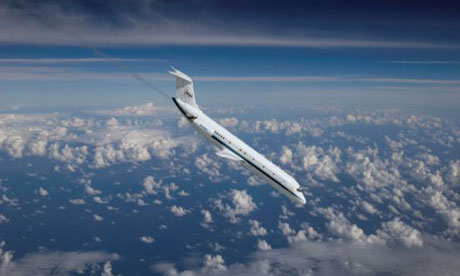
Yesterday I nearly passed out on a transatlantic flight. I'm not the best traveller at the best of times, but for once this had nothing to do with my location. I was reading Extremes by Kevin Fong, and I was so absorbed in his description of being aboard a helicopter that was ditching into water that, without realising it, I'd been holding my breath as I read the paragraph. Luckily I'm a speedy reader, but were I slower who knows what would have happened.
From the outset Extremes is a gripping read. Fong's turn of phrase puts you at the centre of the story, and with those stories describing the limits of human physiology, it's the kind of book you want to read peeking through cracks in your fingers; you want to look away, but not as much as you want to know what happens.
Fong weaves his own experiences from medical training and working as an anaesthetist with case studies, historical incidents, and tales from Nasa. He took a degree in astrophysics before studying medicine, and worked at Nasa's Johnson Space Center in Houston whenever breaks in his medical training would allow.
The book begins with Scott, perishing in a tent on the Ross Ice Shelf, and concludes with contemplation of the technologies still required for a manned mission to Mars. Along the way we take in how the body can (or more accurately can't) cope with extremes of temperature, pressure and trauma, and how technologies have developed to allow modern medicine to perform audacious acts of preserving life at these extremes, where without technology our bodies would fail.
The themes of exploration and medical technology meet throughout the book, and from his writing you get the impression that Fong is pretty passionate about both. And the combining of the two never feels forced; in order to explore further extremes, we need technologies to keep our frail human bodies protected from them, whether it's the intense cold at the poles, the pressure of the deep sea or the as yet unknowable perils that could face a manned mission to Mars. In the chapter about getting humans into orbit, I wonder if Fong will be tempted to add Felix Baumgartner's balloon leap in later editions. This is a recent example of a human taking their body to an extreme location, which could fit, though the book by no means needs it.
I held my breath, I shed a tear, I laughed out loud, and I struggled to keep my lunch down at various points through this book, and that can only be a good thing. One thing I'll say though, reading a description of being aboard the "vomit comet" (a passenger plane internally modified which follows a parabolic flight path to simulate weightlessness), while somewhere above the Atlantic isn't necessarily advisable. Particularly if, like me, as a child you were so travel sick that even pedalos weren't always free from incident.
• Extremes, by Kevin Fong, is published on 14 March







